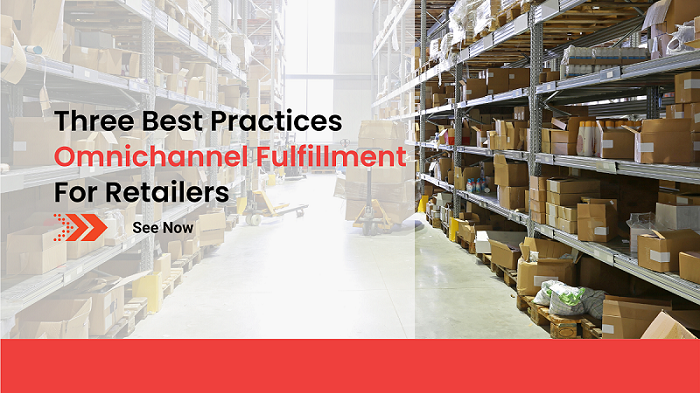Because of the increasing growth of e-commerce, the fulfillment service is developing and progressively becoming more popular. Most business transactions are “internalized”, sales are faster and easier, and the quantity of orders increases. As a result, omnichannel fulfillment has become a critical component of companies’ efforts to succeed in the marketplace.
1. What is omnichannel fulfillment?
Omnichannel fulfillment is the whole process from the time a customer purchases to the time the goods is delivered to the end-user. It includes picking up, warehousing, packing, and timely delivery to the customer, among other things, all in a synchronous manner, with data channels centralized together. Customers may also use omnichannel fulfillment to explore items, compare pricing, make purchases, and get things via several channels while moving seamlessly between them.
Retailers may simplify and automate order fulfillment while obtaining the speed and agility required to compete in a fast changing retail business by using the correct omnichannel fulfillment strategy.
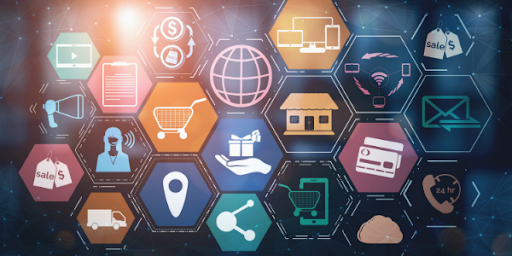
2. How omnichannel fulfillment works
Omnichannel fulfillment helps business obtain their goals through four basic processes:
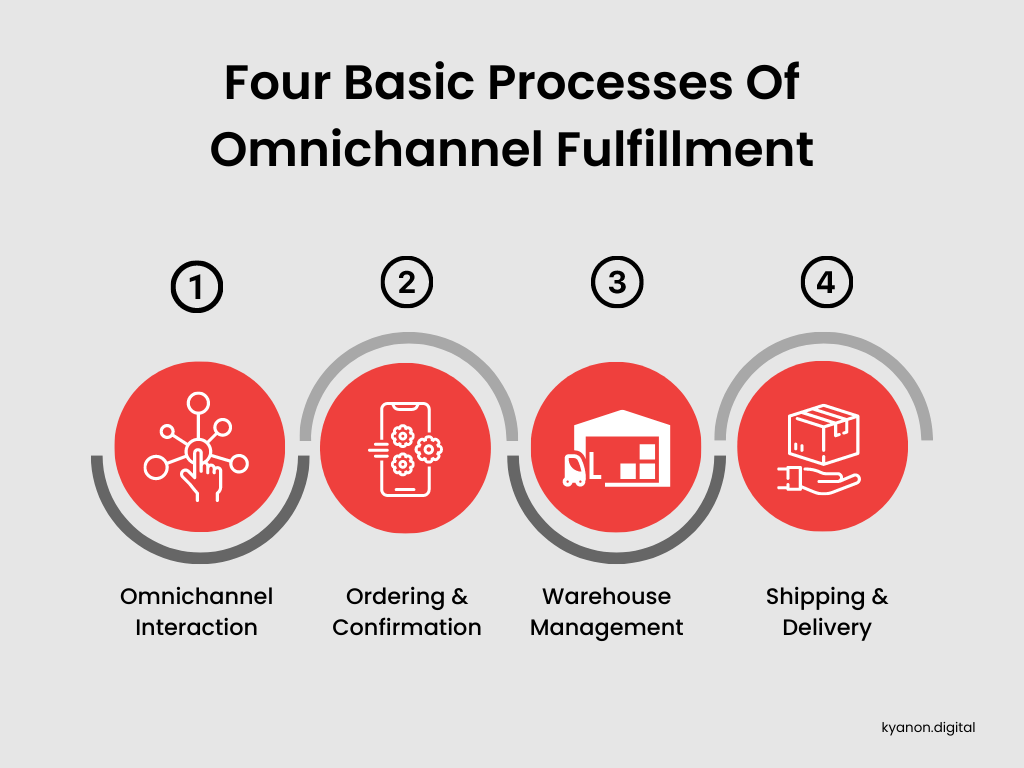
2.1. Omnichannel Interaction
This is where you interact with your customers the benefits of using your omnichannel fulfillment service. Provide them the promise of a seamless experience through different platforms and services.
2.2. Ordering And Confirmation
The main point that appeals to consumers of this step compared to the standard order confirmation process is that they can place an order on a mobile device, choose a shipping option that they want to pay, and know exactly when it will be delivered.
2.3. Warehouse Management
The process is where orders are actually filled in real-time. Different from traditional methods of fulfillment, these extra channels provide much needed flexibility and ensure your customers get what they want, when they want it while keeping you compliant with your vendors.
2.4. Shipping & Delivery
Shipping is the fourth process in omnichannel fulfillment but also one of the most important, as it utilizes advanced shipping software to satisfy consumers by letting them be able to track the shipping status.
As effective as omnichannel fulfillment is at allowing companies to synchronize inventory, logistics and distribution functions across all sales channels to meet consumer demand, it comes with its own unique set of challenges that retailers need to take time to understand to refine their implementation strategies to overcome issues and excel in the omnichannel space.
3. Retail Fulfillment Strategy Examples
3.1. Buy online, pick up in store (BOPIS)
According to the Retail Professionals Survey from McKinsey & Company, store-based pickup options have experienced tremendous tailwinds and innovations throughout the pandemic.
Moreover, McKinsey’s consumer insight research shows that about 60 percent of consumers plan to continue to use this option after the pandemic. These relatively high adoption rates are in part due to the convenient, free, and fast offering on this capability, as best-in-class retailers have orders ready for pickup in under two hours. This can be a compelling alternative to fast ship-to-home delivery.
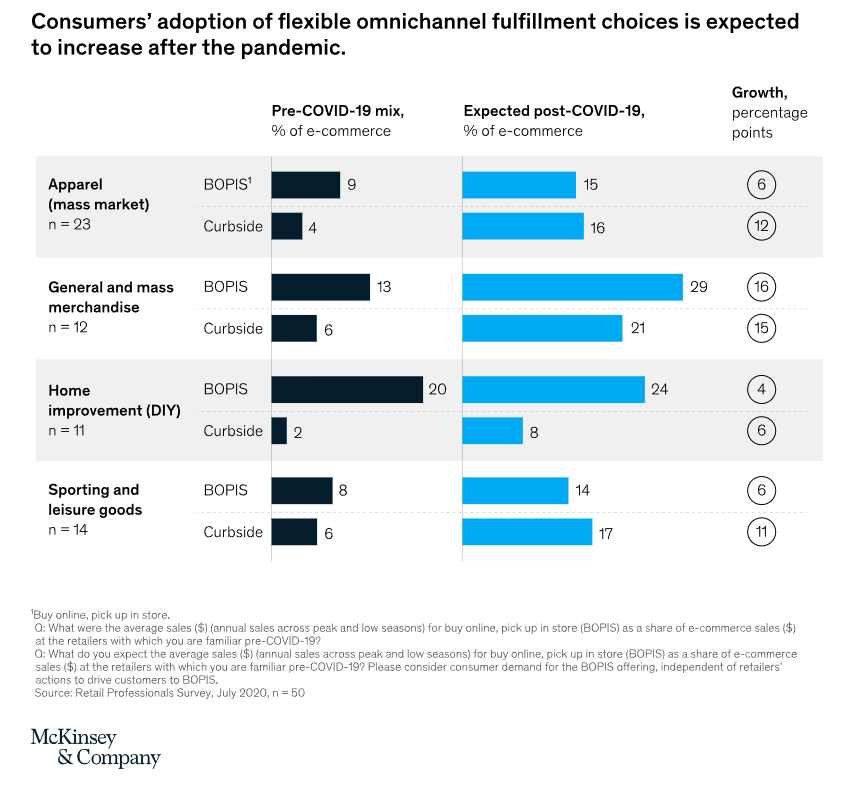
3.2. Third-party logistics (3PL)
Many businesses delegate fulfillment to a third-party. This is an excellent choice for a startup whose reliability is determined as much by the constancy of their service as by the quality of their products.
3.3. Drop shipping
Many online retailers employ items from a variety of producers, some of whom ship straight from their own warehouse. This eliminates the need for inventory storage, but it does necessitate an additional layer of communication to verify that things are accessible and that they are delivered to customers in a timely manner.
3.4. Pick-up outlets
You might also work with a local retailer or another mode of transportation (such as a UPS location) to handle your purchases.
3.5. Self-managed fulfillment
If you’re a small business that’s just getting started, outsourcing to a third-party logistics provider might not be worth it. If you have the resources to support your own in-house logistics, however, you will have a lot more control over your brand and consumer satisfactions.
4. Three best practices omnichannel fulfillment for retailers
4.1. Amazon
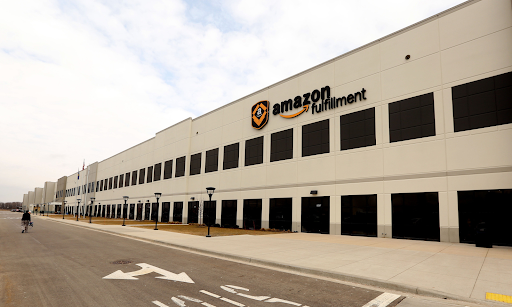
Brent Bigonger, Senior Database Administrator, Amazon once said, “After migrating to AWS Aurora, provisioning additional capacity is achieved through a few simple mouse clicks.”
Customers love Amazon because of its large assortment of items and rapid, frequently free shipping. However, behind the scenes, delivering a simple, smooth shopping experience necessitates a vast amount of infrastructure and technology. Amazon’s largest warehouses cover roughly one million square feet, employ thousands of people, and have the capacity to store millions of different inventory items.
4.2. Nike
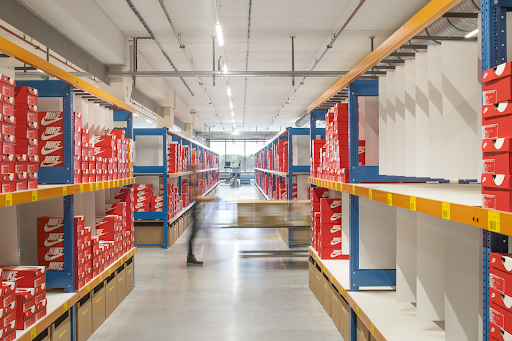
Nike has gone all-in when it comes to online sales. Embracing the digital experience has proven profitable: The company’s department store sales lag behind those made online. Pre-pandemic, Nike projected e-commerce sales to account for 30% of revenue by 2023, but they’ve already surpassed that objective, accounting for 50% of Nike’s income.
“Digital is fueling how we create the future of retail,” CEO John Donahoe told CNBC in 2020, after the company piloted Nike Live, a thoughtfully studied local store effort combining digital with personal service.
The Nike App holistically encompasses this digital experience:
- Its neighborhood pickup hubs process eligible orders within two hours and send the buyer a QR code once it’s ready.
- Using the App’s member pass, shoppers can redeem products from a digital vending machine.
- The company created a community around App users, with exclusive access to new products, birthday rewards, and feature stories on local Nike teams.
4.3. Zara
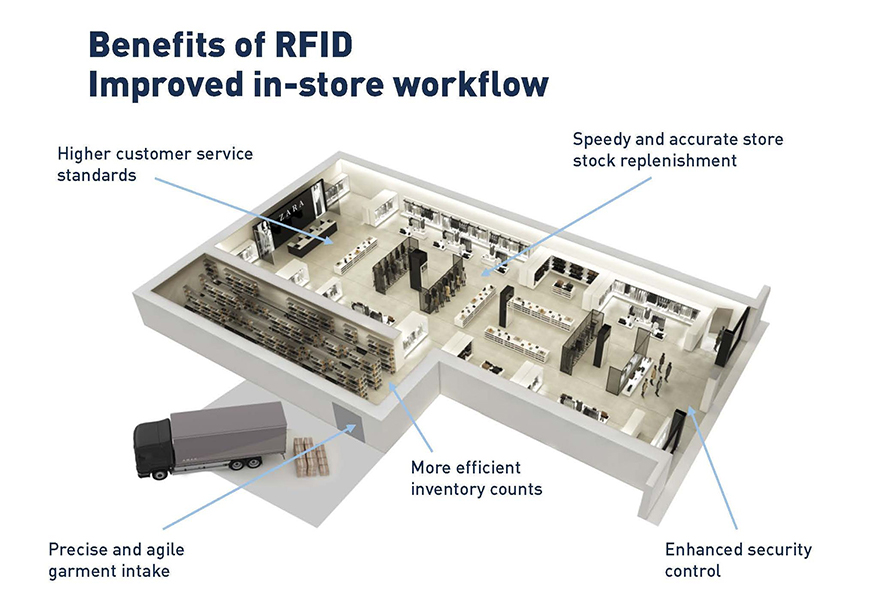
Source: Inditex.com
Inditex is Zara’s parent company. In April 2020 when the world was facing with COVID-19, Inditex asked some Zara and Massimo Dutti staff to return to closed stores in April 2020 and begin filling online orders with store inventory. This quick transition to omnichannel fulfillment, which used shuttered stores as ‘dark’ fulfillment facilities, helped their online sales increase by 50% year over year. This speedy change would not have been possible without their earlier digital transformation strategy and advanced IT platform.
Inditex has been famous for investing in technology to revolutionize fashion, such as their use of RAIN RFID and the resulting data to enhance customer service, improve supply chains, curate store inventories, build smarter dressing rooms, and transform the in-store experience. With their RAIN RFID solution, Zara gains greater visibility into item locations, changing how they fulfill customer orders and operate their stores.
5. Conclusion
To meet modern expectations of the omni-customers, retailers need to create new planning and omnichannel fulfillment methods to enable convenient, predictive, and cost-effective deliveries to their customers. Retailers need to come with good solutions for those above challenges, and they have to cover all angles. And the companies that want to stand out and survive will be those who keep up with the best technological tools, streamline their processes, and offer enough flexibility to meet new consumer trends. All these require a ton of work if your company has to go by itself. Therefore, finding a good partner who can give the best advice to boost up your own distinctive business is the best solution.

Kyanon Digital is a Vietnam-based tech powerhouse providing world-class digital solutions with an agile approach. At Kyanon Digital, we are striving to leverage our expertise everyday to create endless value for our clients, especially recommending the fittest and the most effective solutions. Our consultant teams are capable of supporting globally and fulfill your technological missing piece with the best-suit advice in any sector. Contact Kyanon Digital immediately, and we will show you how to get started.
